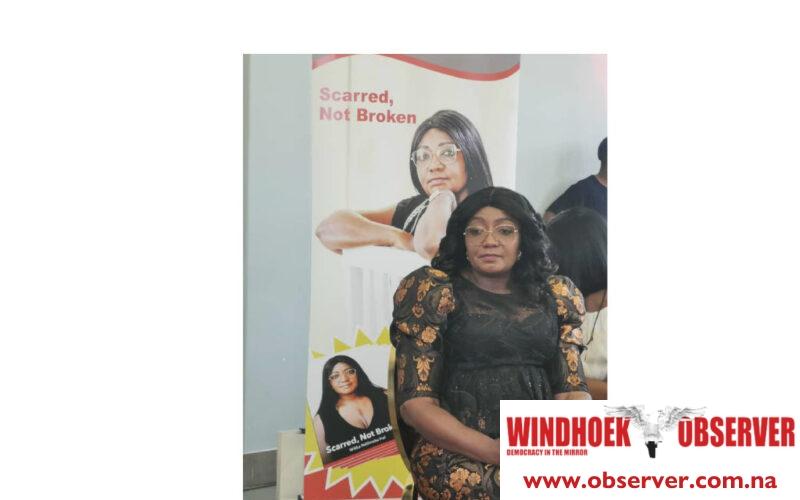Ester Mbathera
Wilika Frai endured endometriosis, a chronic and often painful condition where tissue similar to the lining of the uterus grows outside the uterus for more than ten years.
This condition can cause severe pain, especially during menstruation, and can lead to fertility issues.
Frai, who was born and raised in Katutura, faced years of ridicule for not having a child during her marriage.
In 1992, she married veteran broadcaster Andreas Frai, whom she met in Rundu while working as a typing teacher at Dr. Romanus Kampungu.
It took 11 years for her to conceive.
During that period, friends rejected her and made hurtful remarks about her inability to conceive.
“Some friends made hurtful jokes and false accusations, even suggesting I had an abortion, which deeply depressed me and humiliated me. It’s unfortunate that some women lack empathy, especially when others face difficulty conceiving after getting married,” she said.
Wilika admitted that the thought of taking her life crossed her mind several times.
After years of visits to different doctors and multiple surgeries, Wilika found out she was pregnant in 1998.
“Andreas and I were elated and also desperate to be blessed with a baby,” she said.
However, this joy was short-lived as she miscarried five months into the pregnancy.
“Surrounded by women welcoming their newborns to the world with joy and excitement, I was grappling with my loss,” she said.
Wilika did not give up hope and was determined to bring a child into this world no matter the cost.
On 1 November 2002, she welcomed her first son, Adriaan. Two years later, Steve arrived on 25 January 2005.
“This journey taught me the resilience of the human spirit, the depth of love, and the unyielding determination to bring new life into the world against all odds,” she said.
In 2013, Wilika began facing additional health challenges that would change her life forever.
“Endometriosis plagued me for over a decade, and I suffered from blood clots in my lungs more than once. There were moments when I stood on the brink of death. My heart weakened, and my breathing laboured. Simple activities like walking or sitting became monumental tasks,” she said.
Doctors found that she had massive pulmonary emboli (blood clots) in both lungs.
They diagnosed her with pulmonary hypertension, a type of high blood pressure that affects the arteries on the right side of the heart.
At the same time, Wilika was battling severe depression.
Namibia does not have facilities to treat pulmonary hypertension, so she travelled to Cape Town, where little could be done for her condition.
Wilika was then advised to seek treatment in New York, but no solutions were found.
“Students wanted to study my condition, and I started feeling like a lab rat,” she said.
She returned to Namibia without answers.
In 2016, Telecom Namibia, her employer, asked her to leave the company due to her frequent medical absences. She declined the offer, as she felt that with her condition, the family could not survive on one income.
Due to the multiple emboli, she also developed chronic thrombo-embolic pulmonary hypertension.
She could not afford the prescribed medication, Riociguat, which was not registered in Namibia or South Africa at the time and could only be obtained in the United States or the United Kingdom at a cost of N$350 000.
When the family ran out of funds for private medical treatment, Wilika applied to be reclassified as a state patient to receive financial assistance from the special medical fund of the Ministry of Health and Social Services (MoHSS) for chronic diseases.
She eventually underwent endarterectomy surgery in England in 2015 as a state patient. This procedure required doctors to open her chest and lung arteries to remove the clots and reduce high blood pressure.
Wilika documented her experience in a book titled Scarred, Not Broken, released on Saturday in Windhoek.
She said the idea was not just to chronicle her experiences but to offer hope and encouragement to anyone facing similar struggles.
“This book is filled with tips and advice drawn from my journey. It is a testament to the resilience of the human spirit and the strength we find within ourselves, even in the darkest times. As I conclude this chapter of my life, I encourage you, dear reader, to reflect on your own journey. Tough times make us truly appreciate living and surviving. Don’t be afraid of your scars. Embrace them, for they are reminders of the battles you have won,” she said.
She added that although she is still not fully recovered, she has found ways to live with pain and discomfort.
The Executive Director of the MoHSS, Ben Nangombe, who officiated the book launch, said Wilika’s journey is a testament to the successes within the public health sector.
“It’s all about what is possible when we work together. What can we do if we focus on what is important? What is possible if we all say yes? This is not easy,” he said.




